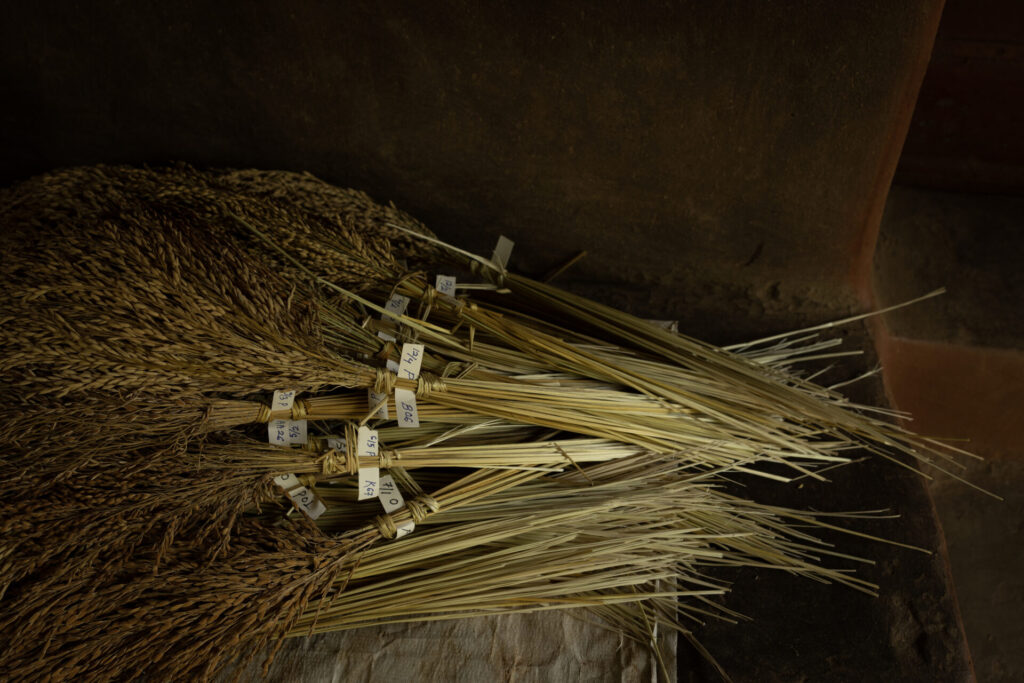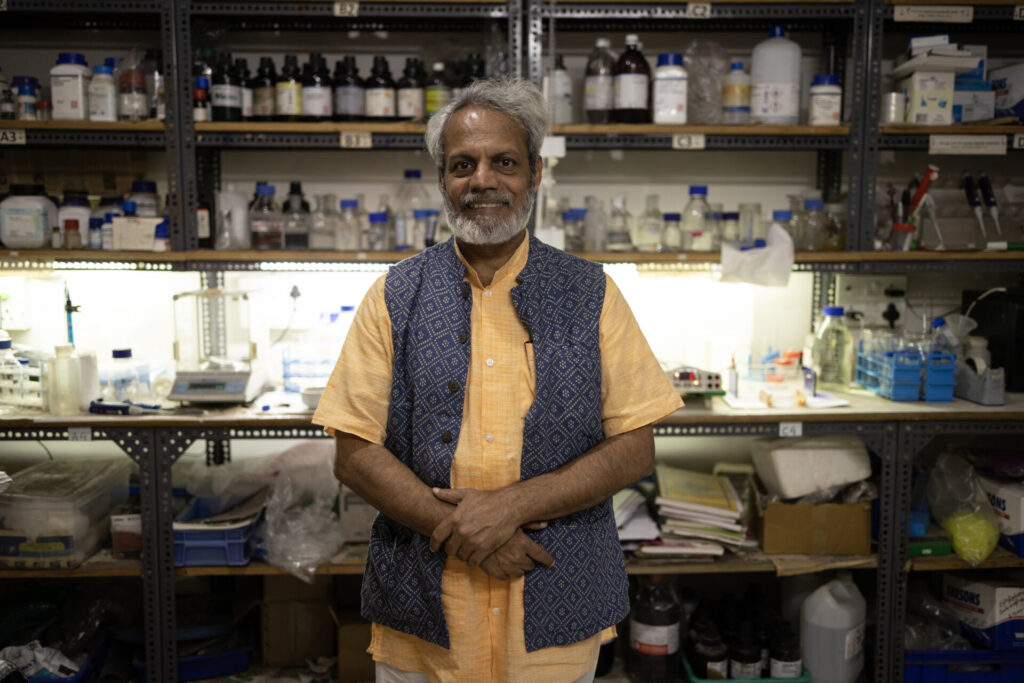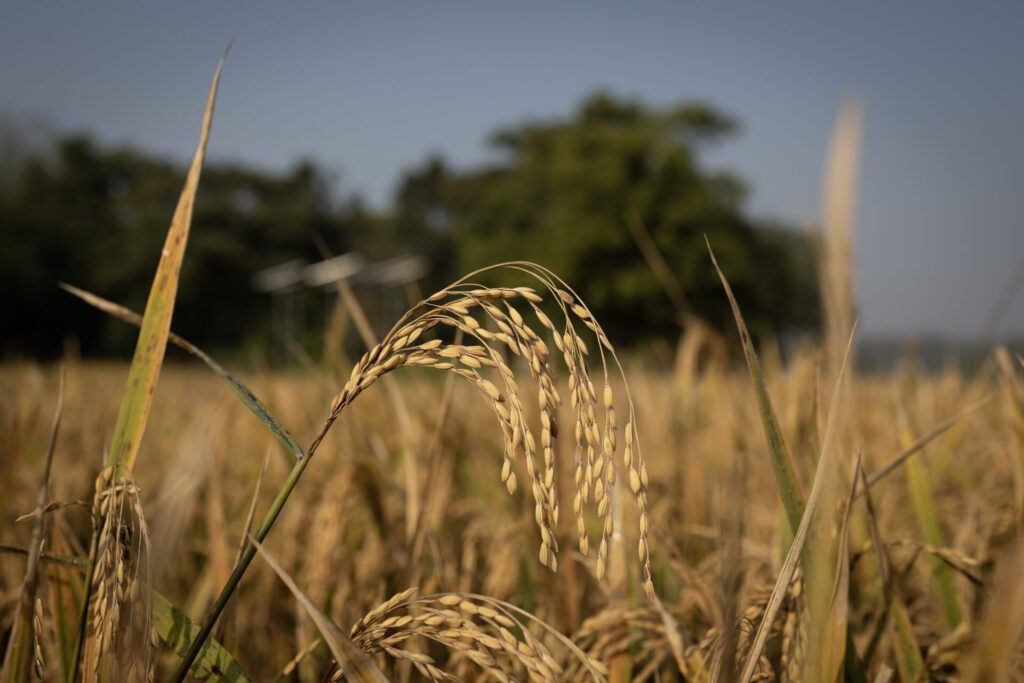“I never knew that the little box of my personal stories of agony and joy, pried open by Dan Saladino’s interrogation, would fascinate so many people I met for the first time. When I saw tears in a few eyes of some of these exceptional people in the audience, I felt blessed and humbled.”
Dr Debal Deb
Rice is the staple food across India, with deep cultural connections and millions relying on it for their health and nutrition. Since the twentieth-century imposition of the Green Revolution, over ninety percent of rice varieties across the subcontinent have been lost, and with them, the crop’s crucial stability and resilience.
Deeply concerned by this devastating loss of genetic diversity, and its looming implications for food justice and beyond, ecologist Dr Debal Deb gave up his home, his career, and his life in the city in desperate hope of reversing this damage before it was too late.
Following Debal’s feature in We Feed The UK’s predecessor, We Feed The World, in 2018, this Regenerative Conversation sees renowned author and food journalist Dan Saladino journeying through this incredible story of grassroots resistance with the seed hero himself.
With unwavering respect for the generations of farmers whose vital work is being fast-unravelled by modern corporate food production, and “cynical optimism” for the future of our food, this discussion paints a raw, emotive, and awe-inspiring picture of Debal’s devotion and perseverance.
The talk also marked the premiere of a new short film, produced by The Gaia Foundation in collaboration with filmmaker Jason Taylor and Dan Saladino and supported by the A Team Foundation. Dr Debal Deb and the Last Harvest shares a beautiful encounter between Dan and Debal on his farm in Orissa, and will be launching online this summer.
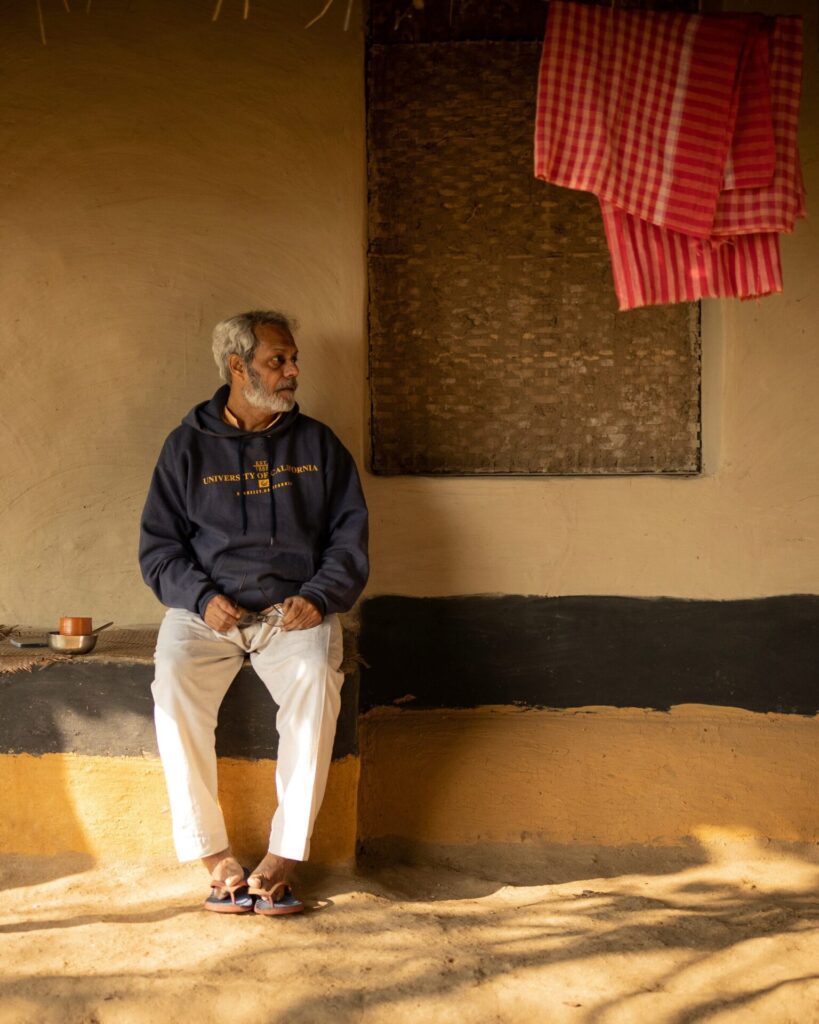
“In ecology, there is a prediction that if any species loses its genetic diversity more and more, then the probability of the species extinction is increased…[Rice] is doomed to extinction. One single attack of pests, or a new pest, or a disease, that species is gone.”
Dr Debal Deb
Over thirty years, Debal has built a collection of 1,460 varieties of rice, each meticulously monitored in an ever-growing patchwork of diversity. Every one of the varieties saved here holds unique properties.
“We have identified sixty-eight varieties of rice which contain twenty times higher iron than the genetically modified iron fortified rice…Nature’s iron tablets.”
These iron-rich grains grow alongside those that can survive droughts, flooding, and high winds, those that can grow in seawater, as well as those which contain medicinal silver.
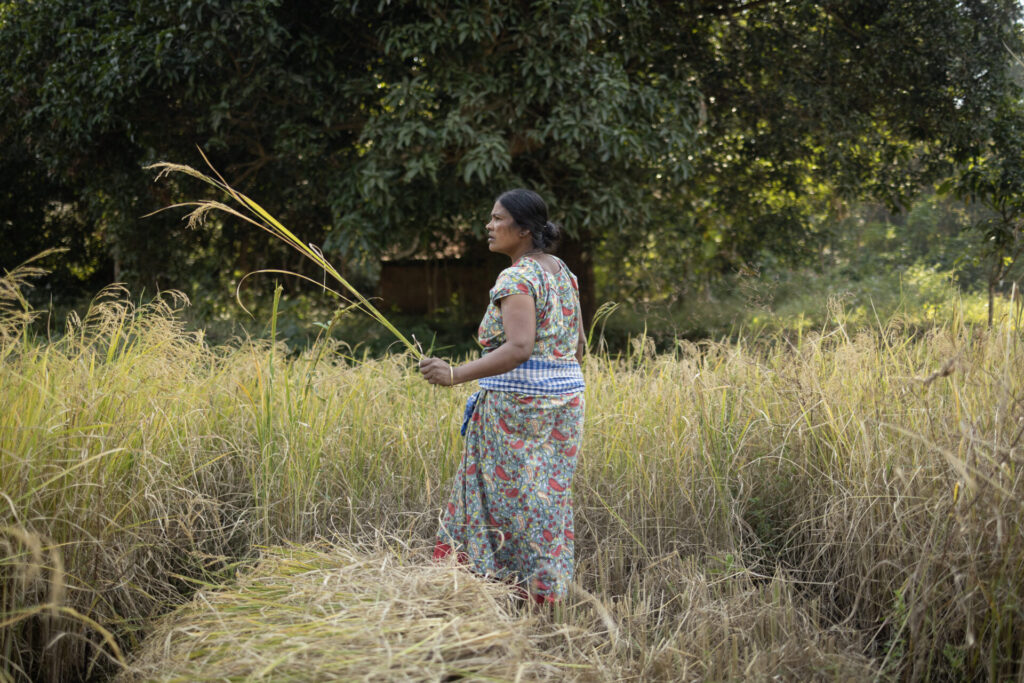
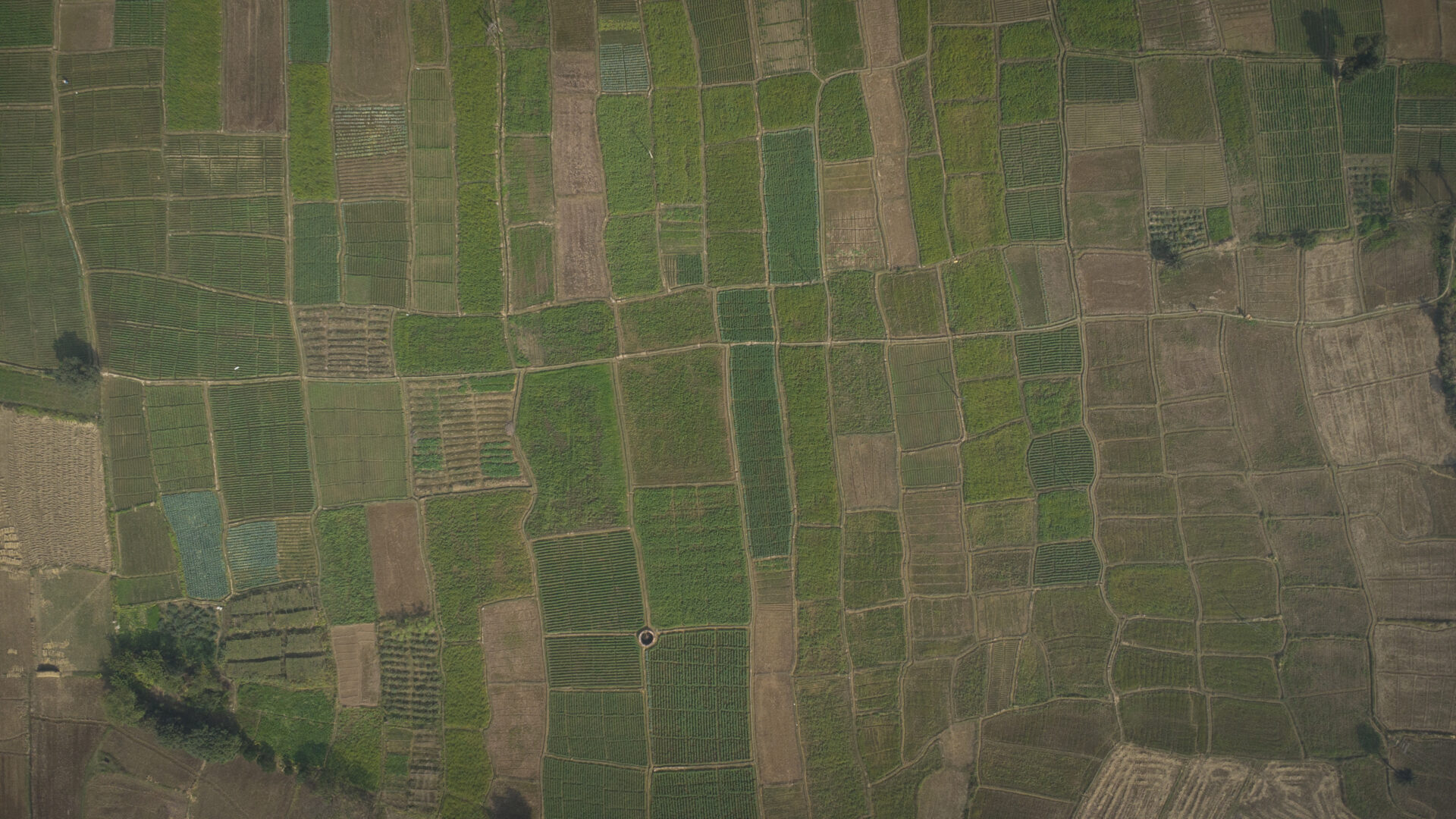
Debal emphasises that this work is not as simple as planting seeds and watching them grow. “Cultivation is maintaining the exact genetic genotype of that seed every year on end.”
With the delicacy of this practice in mind, he refers time and again to those who nurtured these varieties for millennia, before genetically modified strains took over the fields.
“This story of farmer science is erased from our memory. Now we are inculcated into believing that this kind of science is only done in laboratories by scientists wearing lab coats.”
“We do need those drought-tolerant varieties, those varieties that can grow in different challenging conditions, and that’s why the work is so important and so relevant today.”
Dan Saladino
Author of Eating to Extinction, Dan Saladino, has been foraging for positive stories of food diversity for years, bringing awareness to the fragility of our food system and what we can do to save it.
“Where our food comes from, the origin stories of our food…I think is one of the most important stories any human can hear.”

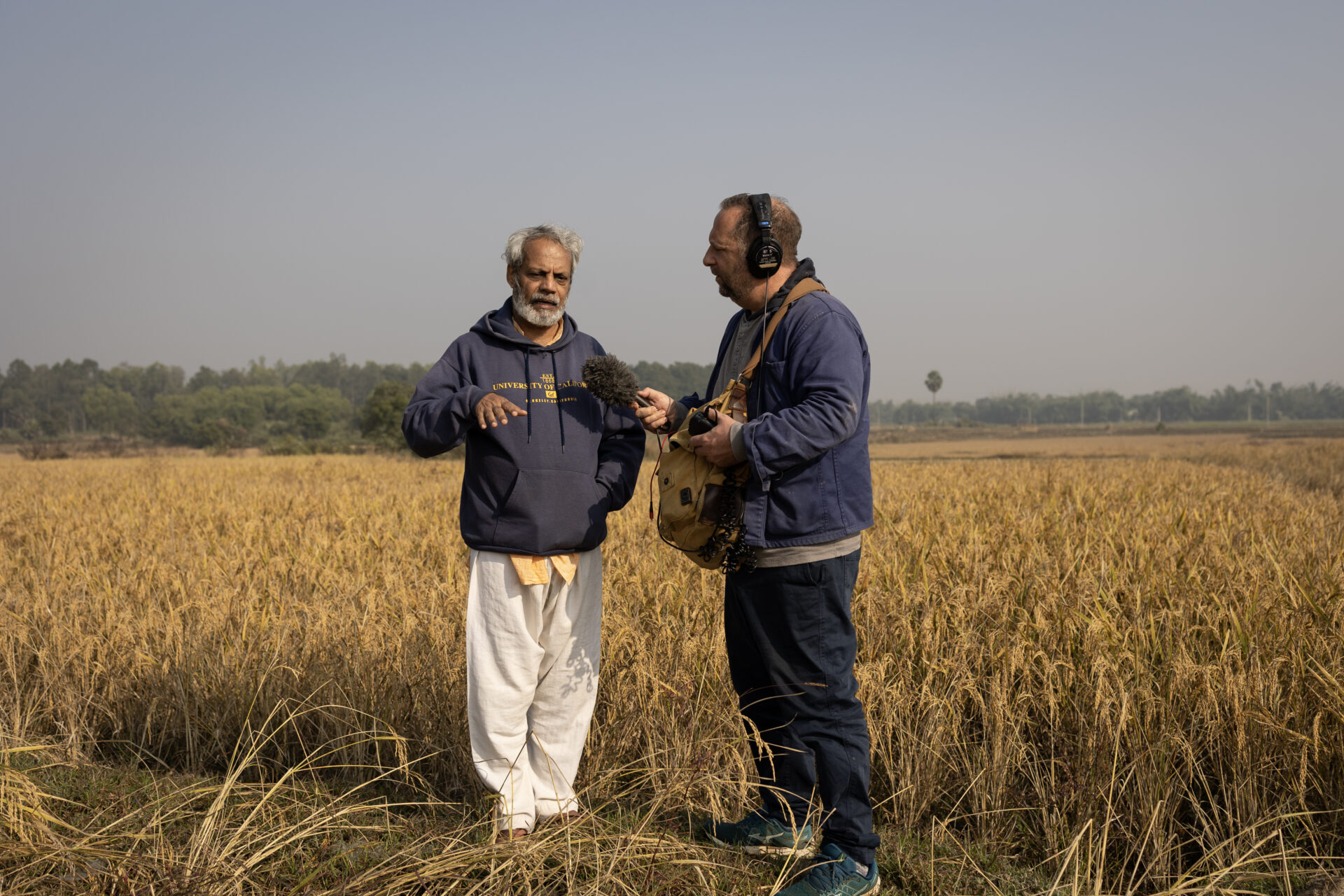
Visiting Debal in Orissa, Dan learned of the work he is doing to reconnect farmers with heritage, resilient, nutrient-rich rice seed. Despite major funding obstacles, Debal’s farm, seed bank, and laboratory have forged lifelines for hundreds of endangered, yet much needed, varieties.
“These unknown, unnamed scientists, who are the farmers of the world, created this diversity, and it is our responsibility as well that they are disappearing.”
Dan Saladino
This Regenerative Conversation ended with powerful words from Hot Poet Liv Torc‘s poem, We Are The Seeds, performed live to the audience.
We are community,
we are tribe,
custodians of the stories
which will help our people stay alive.
We are deeply honoured to elevate Debal’s work, and it has been a joy to facilitate his UK tour with generous support from the Savitri Trust, touching audiences in East Anglia, Bristol, Horningsham, Durham, and Cirencester, where he was reunited with his We Feed The World portrait, on permanent display alongside the full exhibition at the Royal Agricultural University.
Debal’s story is one which must be told. Over and over. Reaching as far and as deep as possible. It is a story of determination and resilience that radiates the power of true care for people and our shared planet.
Without access to funding and resources, after over a quarter of a century, Debal’s work is drawing to a close.
“As a concerned citizen, I thought, “let’s start conserving, then eventually more competent people will come over.” I never imagined nobody would come over.”
Dr Debal Deb
We hope that through generous donations from supporters, Debal can raise enough money to ensure his legacy lives on in trusted hands for many years to come.
Catch up on all our reflections from the Open House event on 10 May, and explore the other Regenerative Conversations from the day, on agrarian localism, sustainable fishing, and a grain revolution.
